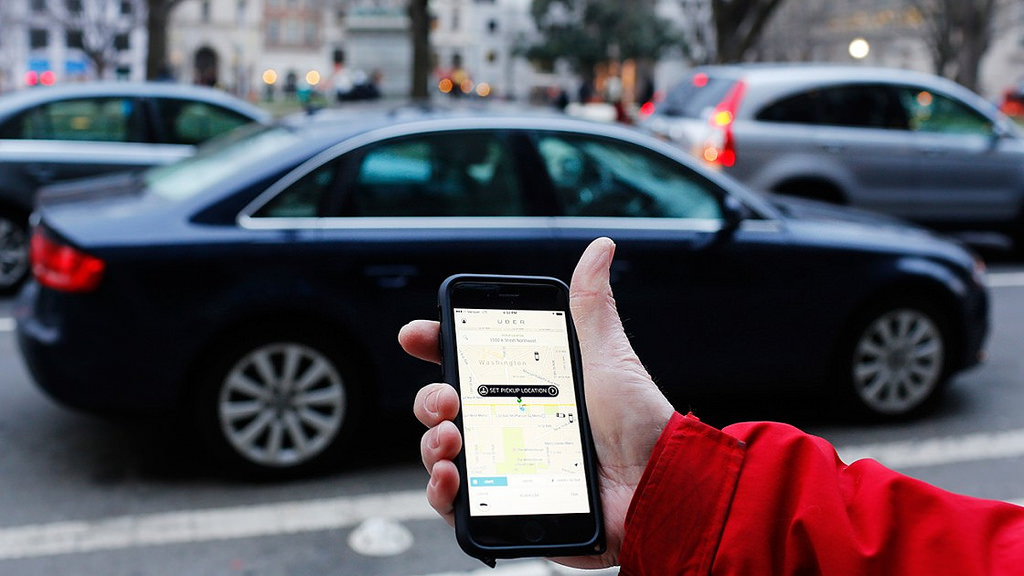Humans as a Service

The rise of the ‘Sharing’, ‘Gig’ or ‘Uber’ Economy is disrupting business models across the globe. Transportation services Uber and Lyft use mobile phone apps to connect customers with their ‘driver partners’. Deliveroo - a food delivery service that uses a similar model, and launched in 2013 - is but one of the companies currently in the spotlight, as more than 13,000 of its ‘riders’ are seeking to gain workers’ rights.
This crowdsourcing of work, or provision of ‘Humans as a Service’, as Jeff Bezos, the CEO of Amazon, so memorably put it, has had a profound impact on traditional conceptions of employment relationships. The completion of ‘tasks’, ‘gigs’ or ‘rides’ in the (digital) crowd fundamentally challenges our understanding of work in modern labour markets: gone are the stable employment relationships between firms and workers, replaced by a world in which everybody can be ‘their own boss’, enjoy the rewards – and face the risks – of independent businesses. Litigation between workers, customers, and platforms is on the rise in the US and Europe, with many fundamental questions raised by crowdwork still lacking authoritative answers.
Jeremias Prassl, Associate Professor of Law, is particularly interested in the regulation of fragmenting labour markets. His earlier monograph, The Concept of the Employer (now available in paperback, published by OUP, 2016) looked at an employer-based approach to problems arising from multilateral employment relationships such as outsourcing and corporate groups; his research is now turning to crowdwork as the most recent instantiation of these trends, supported by a 2015 British Academy Rising Star Engagement Award to further his work in European Employment Law.
In his upcoming book, Humans as a Service (OUP, forthcoming 2017) Jeremias asks whether this model could be the future of work, and develops a blueprint for judges and legislators trying to grapple with the question how, if at all, the industry should be regulated. Questions abound, including,
- What is crowdwork?
- What are the advantages and problems resulting from this new phenomenon?
- What are the benefits and challenges of working in the crowd?
- Is the crowdsourcing economy really fundamentally different from existing work arrangements and should it therefore fall outside the scope of employment law, as many providers claim?
- What are the broader implications of employment regulation for consumers and the state?
How should the law respond in order to regulate on-demand economy work? The answer, Jeremias suggests, lies in recognising that whilst crowdwork is presented as a novel phenomenon, most platforms’ business models are not in fact fundamentally different as far as workers are concerned. Regulators should thus focus on bringing crowdwork back into the structures of employment law, carefully adapting existing norms as and when required. We should abandon the traditional focus on the employee question, and focus on the concept of the employer: which entity, or indeed combination of entities, is responsible for organising work under the platform’s business model? Jeremias has been invited to develop this model in lectures for a number of international organisations (including the European Commission and the ILO), as well as governments and other stakeholder fora across Europe; his work has also been featured in newspapers including the Financial Times.
In the book, Jeremias will offer a detailed account of crowdsourced work, drawing on a wide variety of sources and jurisdictions. One of the key assumptions underpinning the rise of ‘crowdsourced work’ – from transport apps including Uber to online platforms such as Amazon’s Mechanical Turk – is the assertion put forward by most platforms that crowdworkers are self-employed, independent contractors. As a result, individuals might find themselves without recourse to worker-protective norms, from minimum wage and working time law to health and safety regulations and unfair dismissal protection. A recent paper ‘Uber, Taskrabbit, & Co: Platforms as Employers? Rethinking the Legal Analysis of Crowdwork' (Comparative Labor Law & Policy Journal, 2016, with M Risak), sketches the first ideas for regulatory solutions, arguing that in certain scenarios crowdworkers can, and should, be classified as workers within the scope of domestic employment law.

